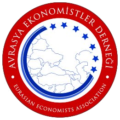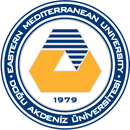
International Conference on Eurasian Economies
11-13 June 2019 – Famagusta, Turkish Republic of Northern Cyprus
Paper properties
Paper ID : 2296
Status : Paper published
Language : English
Topic : International Trade and Globalization
Presenter: Ph.D. candidate Ayat Abdelrahim Suliman Esaa
Session : 2A Growth
The Export-Led Growth Hypothesis: A Panel Cointegration Approach in the Middle East and North Africa Countries (1980-2017)
The Export-Led Growth Hypothesis: A Panel Cointegration Approach in the Middle East and North Africa Countries (1980-2017)
- Ph.D. candidate Ayat Abdelrahim Suliman Esaa (Çukurova University, Türkiye)
- Prof. Dr. Harun Bal (Çukurova University, Türkiye)
- Assoc. Prof. Dr. Erhan İşcan (Çukurova University, Türkiye)
Abstract
This study examines the hypothesis of the Export-Led Growth in the seven selected Middle East and North Africa countries, the hypothesis state that export growth driven by export promotion policies enhances overall economic growth. Empirical investigations have tended to focus attention on the direction of causality between exports and economic growth using Granger causality tests. However, the empirical results based on these tests are, at best, mixed and often contradictory. The paper employs panel data analysis by utilizing the Pedroni panel cointegration, Pedroni Dynamic Ordinary Least Squares and Fully Modify Ordinary Least Squares, and Canning-Pedroni causality methods, a recent development in panel data econometrics, properties of integration and cointegration and consistency of parameters. The study considers the following three variables; Real Gross Domestic Product (GDP), Real exports (EXP) and Real import (IMP). Annual secondary data are obtained from the World Bank Development Indicator for seven MENA countries, Namely, Algeria, Egypt, Sudan, Jordan, Saudi Arabia, UAE, and Qatar. The empirical results emphasize the existence of a positive relationship between Export and GDP. Results of waled and Z-bar Group statistics indicate the long-run unidirectional causality between Export and GDP, operates from Export to the GDP. It confirms the validity of Export-led growth hypothesis of the seven selected MENA countries. Empirical evidence suggests significant policy prescriptions; these countries should focus more on supporting export orientated industries through aid-for-trade, trade-capacity building schemes and other types of policies in order to promote economic growth.
JEL codes: C23, F10
Esaa, Ayat Abdelrahim Suliman, Bal, Harun, İşcan, Erhan (2019). "The Export-Led Growth Hypothesis: A Panel Cointegration Approach in the Middle East and North Africa Countries (1980-2017)" in Proceedings of International Conference of Eurasian Economies 2019, pp.38-44, Famagusta, Turkish Republic of Northern Cyprus.
DOI: https://doi.org/10.36880/C11.02296





